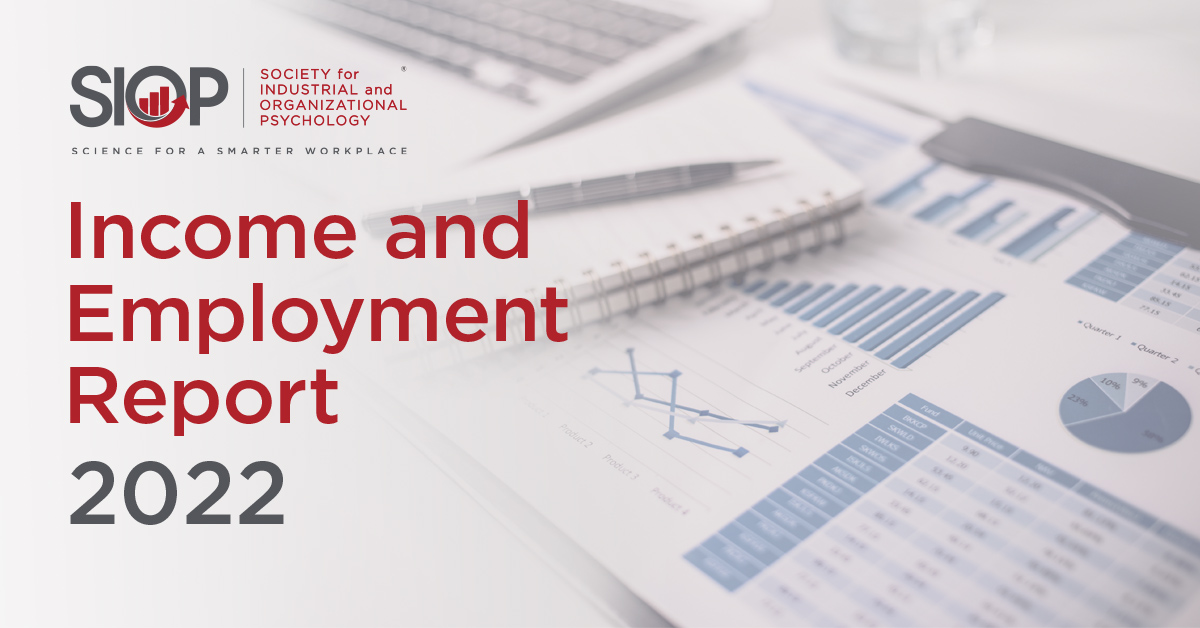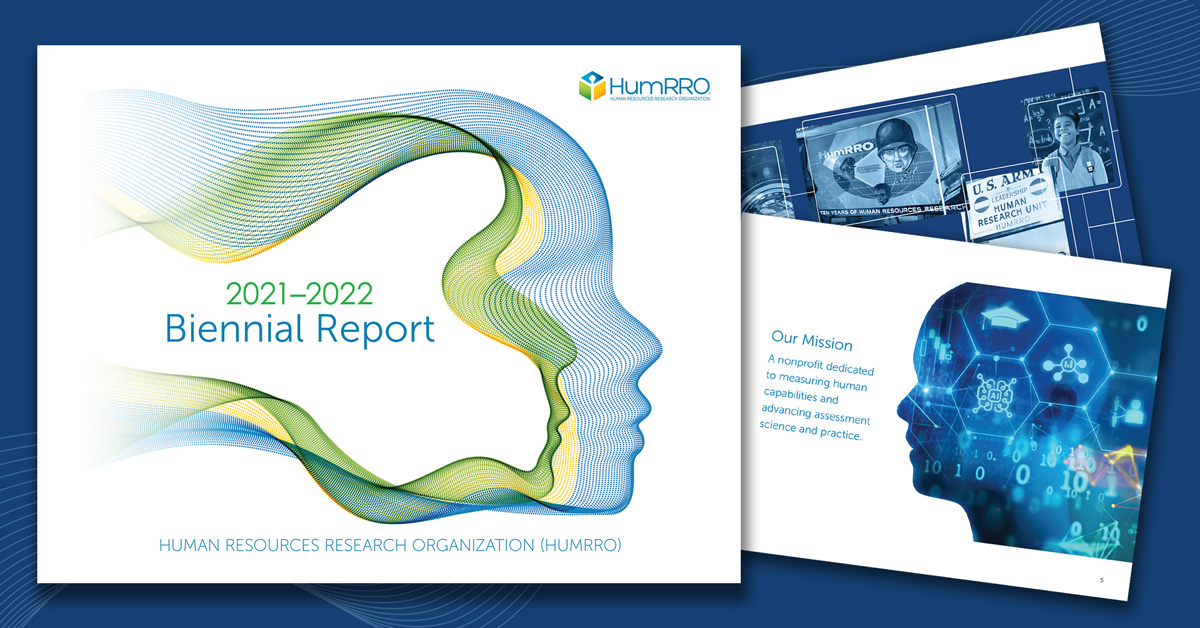The Society for Industrial and Organizational Psychology (SIOP) recently released its 2022 Salary Survey focused on the latest income and employment-related trends for industrial-organizational psychologists. HumRRO analyzed the data and produced the report, which is available to SIOP members, and the Executive Summary, which is open to the public.
For more than 30 years, SIOP has conducted this research to help I-O psychologists understand their market value and to provide employers with compensation benchmark data for the profession. Developed and administered by SIOP’s Institutional Research Committee in partnership with Mercer|Sirota, over 1,200 I-O psychologists across a wide range of organization sizes and industries were surveyed. New this year was the additional questions about the impact of Covid-19 on remote work, employment, income, and benefits.
The results provide a snapshot of the profession and summarize findings designed to understand the factors that impact income, including highest degree obtained, tenure, and employment sector as well as other demographic variables, according to SIOP.
Key Salary Findings
Median income for master’s-level respondents increased more than the median income for doctorate-level respondents from 2018 to 2021, the data showed. Salaries for doctorate-level respondents rose by 9.6% since 2018 to $137,000, while master’s-level salaries rose by 12.4% to $100,000. The differential in pay between the two levels has been narrowing—from 46% in 2014 to 37% in 2021.
“As the profession has grown, positions requiring only master’s degrees have become more prevalent, which may contribute to the narrowing between doctorate-level and master’s level pay,” noted Brenda Ellis, Ph.D ., senior scientist at HumRRO.
Among doctoral-level respondents, 62% were practitioners and 38% worked in academia. Independent consultant practitioners continue to earn the highest median base salary ($350,000), which was more than double the 2018 figure ($167,000). Academics in business schools had a higher median base salary ($143,559) than those in psychology departments ($92,000), the survey found. Nearly all respondents (97.8%) with a master’s degree worked in applied positions. Among master’s-level practitioners, those working in the technology sector earned the highest median base salary ($121,729) in 2021.
If you have a Ph.D. in I-O psychology, you might want to head to Houston. I-Os in the Space City earned $239,495, the highest median income in the country, adjusted for cost of living. For master’s-level I-Os, the Chicago metro area reported the highest median salary of $133,891, adjusted for cost of living.
On the demographic front, the survey revealed good news for the gender pay gap in the I-O profession. Women earned 94% as much as men in 2021, up from 87% in 2018
—by far the biggest increase since SIOP began conducting the survey in 1982.
Covid-19 Impact
As noted in the report, “the last two years saw major disruptions in the workforce worldwide,” and SIOP wanted to know how the pandemic affected the I-O profession. In previous surveys, SIOP asked members about their work arrangements. However, the latest one was more specific, asking members to report their work arrangements (fully remote, hybrid, or fully in-person) for three timepoints: pre-Covid in 2020, during the height of Covid in 2020, and in 2021.
At the beginning of 2020 before the pandemic, a majority of I-Os had hybrid arrangements (59%) while 17% worked fully remotely. During the height of the pandemic, not surprisingly, the percentage of I-Os working fully remotely jumped to 74%. In 2021, that share dropped to 42% but was still much higher than the 17% of I-Os working fully remotely before the pandemic, the survey found.
Many organizations boosted their benefits offerings in 2020 and 2021 in response to the pandemic such as flexible work arrangements (45% in 2020, 37% in 2021), Covid-designated time off (32% and 26%), and access to personal protective equipment (27% and 26%). In terms of employment and income, most I-O respondents reported no change due to the pandemic in either 2020 (73.4%) or 2021 (88.5%).
Empowering I-Os
The purpose of the Salary Survey is to “provide students preparing for a career in this field, I-Os newly entering the job market, and experienced I-Os seeking a job change or renegotiating with current employers with information that can be leveraged to inform job choice and aid in making decisions about individual career growth,” according to SIOP.
“Industrial-organizational psychologists continue to contribute to organizations in a wide variety of industries and across job sectors, and their value to the world of work is reflected in the steady employment and income trends reported here,” the report concluded.








